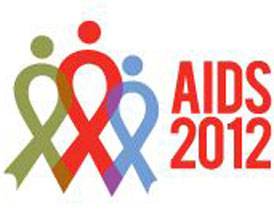
Turning the Tide Together on HIV/AIDS
Blog Search
As I unpacked after arriving at the XIX International AIDS Conference (IAC) taking place in Washington, DC, this week, I was cursing after discovering that the container with my HIV medications had opened up in route, scattering my medications throughout the inside of my luggage. Collecting pills from the crevices of my bag, it brought to mind the reason the IAC had finally returned to the United States after a 22-year hiatus. You see, there was a time not that long ago when people living with HIV wouldn’t risk bringing their HIV medications if traveling to the United States, because they were afraid their HIV status might be discovered by customs officials—and until 2010, being HIV-positive was grounds for denying someone with HIV entry into this country, even to visit.
We are making progress when it comes to the advancing the rights of people living with HIV in this country. I am proud of the fact that Lambda Legal was part of the coalition of groups that helped to bring down the HIV travel and immigration ban, which allowed the IAC to return to the United States. At the same time, arrival at this conference reminds that we still have a long way to go and that sometimes things seem to move at a glacial pace. The HIV travel and immigration ban was enacted in 1987 and remained the law for almost 25 years, despite the consistent efforts of Lambda Legal and others to have it lifted. So while I can celebrate the victories of which we have been a part, I am also cognizant of the challenges that lay ahead.
To be sure, the current administration has taken important steps to improve the lives of people living with HIV in the United States. From the creation of the National HIV/AIDS Strategy to enactment of the Affordable Care Act to the very recent announcement of funding to eliminate ADAP waiting lists, we see the government taking concrete steps to address the domestic HIV/AIDS epidemic in ways that its predecessor did not. And those efforts have included an acknowledgment of the stigma, discrimination and health-care-related disparities that fuel the epidemic.
Nonetheless, Lambda Legal continues to receive hundreds of calls a year from people who have been ostracized and discriminated against on the basis of their HIV status—and some of that discrimination continues to be perpetuated by government. Employment discrimination on the basis of HIV status occurs in government agencies, laws that unjustly target PLWH for criminal prosecution remain on the books, and the U.S. military refuses to allow people living with HIV to enter its ranks. So while it is encouraging to see the Obama Administration recognize the importance of stigma and discrimination as a driver of the epidemic and make addressing it an explicit goal of the National HIV/AIDS Strategy, it will require the continuing efforts of people living with HIV, HIV advocates and policymakers—like those gathered from across the globe here in Washington—to ensure that we continue to move forward on this front. As the tagline for this conference states, it will take all of us “turning the tide together” to bring an end to AIDS.
Earlier: Lambda Legal HIV Project Director Scott Schoettes talks to Poz magazine about HIV criminalization laws.




